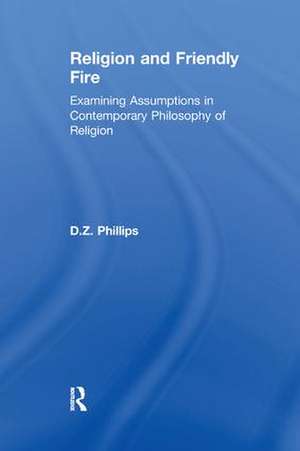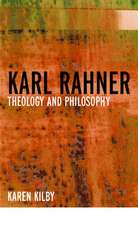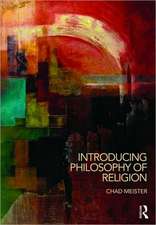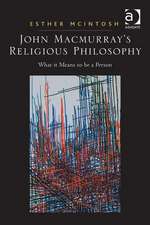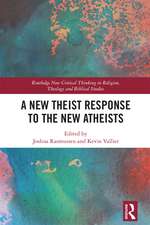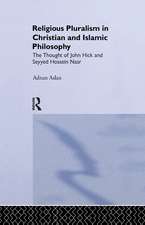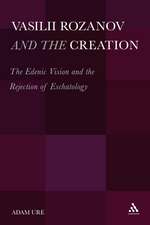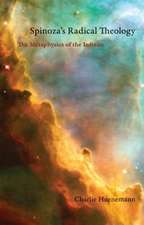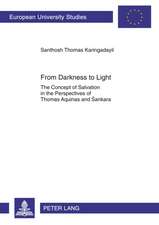Religion and Friendly Fire: Examining Assumptions in Contemporary Philosophy of Religion
Autor D. Z. Phillipsen Limba Engleză Paperback – 31 mar 2017
| Toate formatele și edițiile | Preț | Express |
|---|---|---|
| Paperback (1) | 381.92 lei 6-8 săpt. | |
| Taylor & Francis – 31 mar 2017 | 381.92 lei 6-8 săpt. | |
| Hardback (1) | 1000.27 lei 6-8 săpt. | |
| Taylor & Francis – 8 noi 2004 | 1000.27 lei 6-8 săpt. |
Preț: 381.92 lei
Nou
Puncte Express: 573
Preț estimativ în valută:
73.08€ • 76.51$ • 60.47£
73.08€ • 76.51$ • 60.47£
Carte tipărită la comandă
Livrare economică 05-19 aprilie
Preluare comenzi: 021 569.72.76
Specificații
ISBN-13: 9781138266575
ISBN-10: 1138266574
Pagini: 191
Dimensiuni: 156 x 234 x 15 mm
Greutate: 0.28 kg
Ediția:1
Editura: Taylor & Francis
Colecția Routledge
Locul publicării:Oxford, United Kingdom
ISBN-10: 1138266574
Pagini: 191
Dimensiuni: 156 x 234 x 15 mm
Greutate: 0.28 kg
Ediția:1
Editura: Taylor & Francis
Colecția Routledge
Locul publicării:Oxford, United Kingdom
Cuprins
Contents: Preface; Philosophical method and friendly fire; The Cartesian circle of friends; Propositioning the friends; Must truths tally?; Saying scripture; On trusting intellectuals on trust; Who'll save the soul?; Saying more than we know; Saying less than we know; Index.
Notă biografică
D.Z. Phillips is Danforth Professor of Philosophy of Religion, Claremont Graduate University, USA and Emeritus Professor of Philosophy, University of Wales, Swansea, UK.
Recenzii
’In Religion and Friendly Fire, D.Z. Phillips returns to philosophical questions that have occupied him throughout his career. What makes this book unique and provocative is the way in which these questions are brought together under the theme of what Phillips calls 'friendly fire', which he describes as 'the possibility that harm can be done to religious beliefs by the very philosophical analyses which set out to defend them'.’ Philosophical Investigations
Descriere
In locating friendly fire in contemporary philosophy of religion, D.Z.Phillips shows that more harm can be done to religion by its philosophical defenders than by its philosophical despisers. Friendly fire is the result of an uncritical acceptance of empiricism and Phillips argues that we need to examine critically the claims that individual consciousness is the necessary starting point from which we have to argue: for the existence of an external world and the reality of God; that God is a person without a body, a pure consciousness; and that to assent to a religious belief is essentially to assign a truth value to a proposition independent of any confessional context. When these products of friendly fire are avoided we arrive at a new understanding of belief, trust, the soul, and refuse to say more or less than we know about the realities of human life in the service of religious apologetics.
